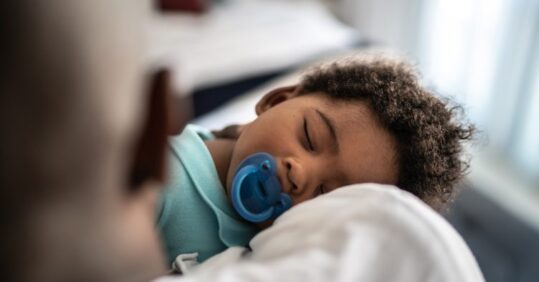Health visiting needs pandemic recovery plan, say experts

Health visiting in England ‘urgently’ needs a recovery plan and additional investment to avoid infant health becoming ‘collateral damage’ from the Covid-19 pandemic, experts have said.
The warning comes in a paper published in the Public Health Nursing journal, entitled Health visiting in England: The impact of the Covid-19 pandemic,written by Alison Morton, Institute of Health Visiting (iHV) executive director, and Dr Cheryll Adams, former iHV executive director.
They said the recovery plan should address missed or incomplete health visiting reviews and ensure the growing numbers of families and infants ‘at risk of poor outcomes’ are identified and supported.
In addition, they called for the health visiting service to be prioritised during future emergencies, after raising concern that babies, young children and families were ‘forgotten’ during Covid.
Related Article: BREAKING: Nurses to staff neighbourhood health centres under 10-year plan
Health visiting ‘compromised’
The review of evidence, national data and published research found the impact of the Covid-19 pandemic was ‘wide-ranging’ and ‘disproportionately affected the most disadvantaged families’, which in turn increased demand for health visiting support.
However, ‘health visitors’ ability to respond was compromised’ during the Covid-19 pandemic, they found. This was because of because of national policy decisions to ‘partially stop the service’ and redeploy large numbers of health visitors in some areas during the first wave.
The review also raised concerns over unwarranted variation in health visiting support across England, the lack of continuity of carers for families because of an under-resourced service – all amid increasing demand for support around mental illness, domestic violence and isolation.
The report said: ‘From the beginning of lockdown, increasing rates of perinatal mental illness, domestic violence and abuse, safeguarding, and the wider impacts of poverty and social isolation quickly became a source of concern…
‘The greatest concerns reported by parents related to the additional stressors of parenting without the usual support networks. Families made clear that they felt abandoned by support services, with many expressing difficulties getting help and advice when needed.’
Related Article: New ‘first-of-its-kind’ adult social care nursing faculty
‘Lessons must be learned’
In particular, the review highlighted the ‘baby blind spot’ during the pandemic, which it said saw the treatment of Covid-19 patients prioritised and ‘wider impacts’ on families overlooked.
It said: ‘No additional resources were made available to services for children under 2 years in general, or health visitors in particular, to manage the impact of the pandemic.
‘Hence, many health visitors struggled with unmanageable caseloads, alongside increased need, with families experiencing a postcode lottery of support.’
To ensure ‘lessons are learned’ and babies do not ‘become the collateral damage of actions to protect the nation’s physical health’, the paper further recommended:
Related Article: QICN bids farewell to Dr Crystal Oldman as she retires from CEO role
- Workforce modelling with investment is needed, with urgent action to reverse the decline in health visiting workforce numbers and ensure they have a manageable workload.
- Address unwarranted variations in access, experience, and outcomes of the health visiting services across England.
- A proactive plan for staff wellbeing is needed to ensure that health visitors and their teams have the right support during the restoration of services.
Ms Morton said: ‘Babies, young children and families have largely been forgotten in the pandemic response and we hope that this paper, alongside numerous others presenting similar messages, will provide the impetus for much-needed change and investment.’
This comes after maternal health experts last week called for health visitors and midwives to receive dedicated training in maternal mental health.

See how our symptom tool can help you make better sense of patient presentations
Click here to search a symptom




